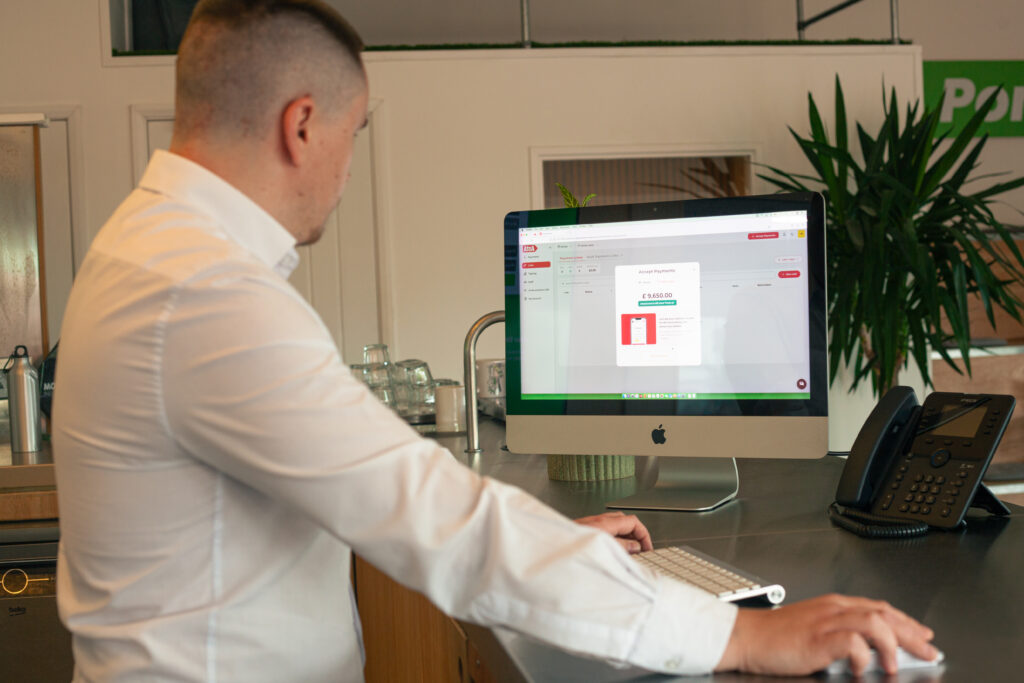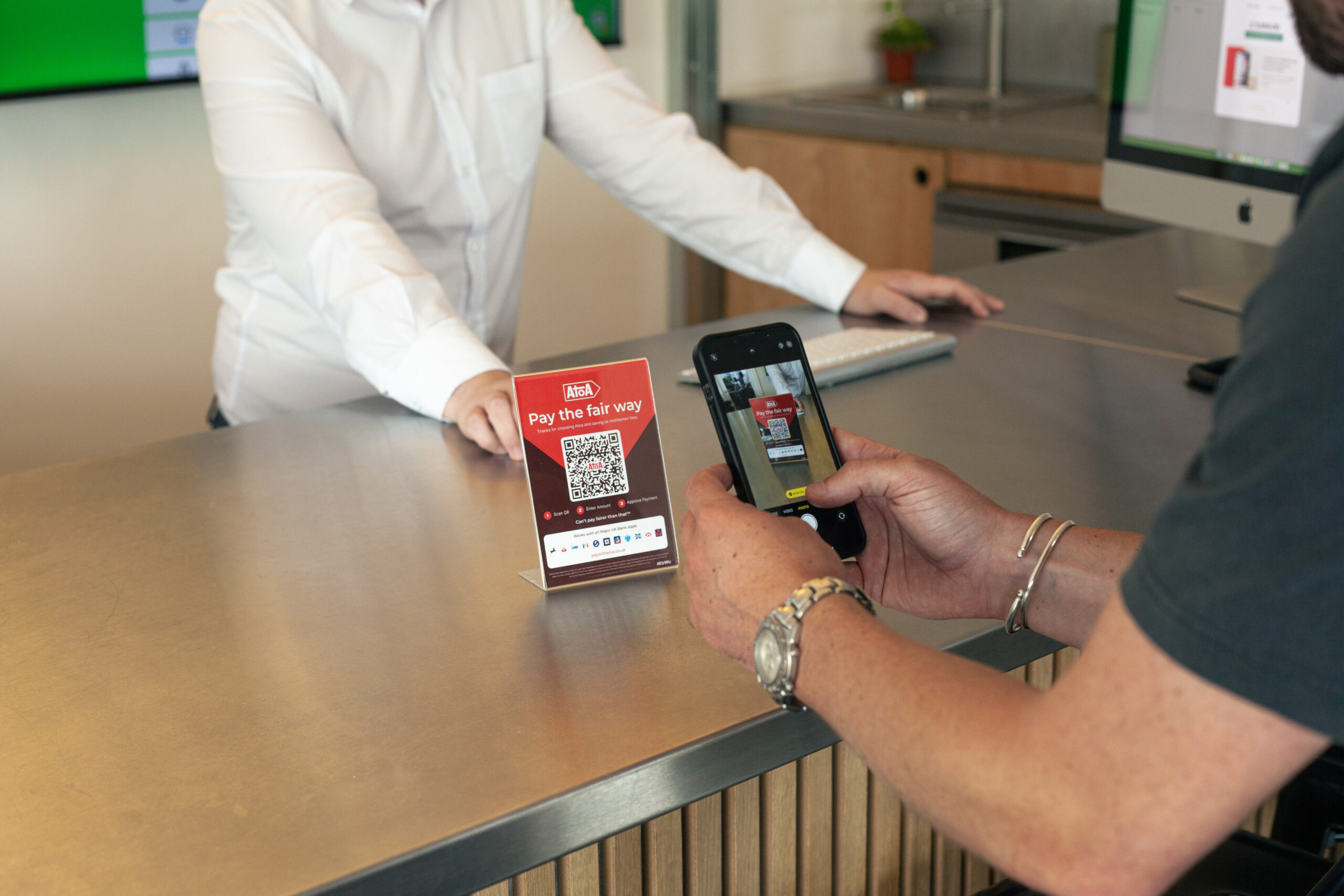Ready to get started?
Easily integrate next-generation payments and financial data into any app. Build powerful products your customers love.
Did you know that open banking payments help businesses in the UK save up to 150 hours on operational tasks every year? That’s according to a survey conducted by NatWest, which highlights just how transformative this technology can be. So, as we move towards 2025, open banking is not just a buzzword; it’s becoming an essential tool for firms looking to cut costs and improve their operational efficiency.

How do open banking payments work?
It lets you securely share your bank account details, transaction history, and more with trusted third parties (with your permission, of course). Whether it’s payment providers, budgeting apps, or lenders, open banking opens the door to smarter, more personalised financial services. In the UK, it was introduced as part of the EU’s Revised Payment Services Directive (PSD2) and it’s regulated by the Financial Conduct Authority (FCA).
In this article, we’ll explore how open banking payments can lower costs, while also highlighting real-world examples that demonstrate its potential.
5 ways open banking can help reduce costs
Here’s how open banking payments can help your business save money and improve cash flow.
1. Lower transaction fees
How it helps: Traditional payment systems like credit or debit cards involve several middlemen (think card networks and payment processors), each taking a share. Open banking cuts them out entirely by enabling direct bank-to-bank payments. This reduces the transaction fees by up to 60%.
Impact: For firms handling high transaction volumes, like car dealerships, eCommerce businesses, or law firms, these savings can quickly add up. Over time, this adds up to a substantial reduction in operational expenses.
2. Reduced fraud-related costs
How it helps: Open banking payments come with robust security measures, like strong authentication standards (thanks to PSD2 regulations). This includes two-factor authentication (2FA) like face or fingerprint scanning, and secure APIs. This reduces the risk of fraud.
Impact: Reduced fraud and chargebacks means lower insurance premiums, fewer compliance costs, and a decrease in manual intervention to handle disputed transactions. For some businesses, this factor significantly reduces costs.
3. Faster payment settlement
How it helps: Waiting days for payments to clear is a thing of the past. With open banking, payments settle almost instantly—often within minutes instead of days. That means less time chasing funds and more time focusing on what matters.
Impact: Faster payments mean better cash flow. It also reduces the need for short-term financing, such as overdrafts or credit lines. This will cut down on interest charges and reduce financial stress.
4. Automated reconciliation
How it helps: This technology allows for automatic reconciliation of payments by syncing transaction data directly with your accounting systems.
Impact: By automating this often error-prone process, you’ll save on accounting costs and reduce admin tasks. This means you can cut back on the need for extra finance staff or outsourcing, improving both your efficiency and your bottom line.
5. Moving away from outdated payment systems
How it helps: Open banking lets you skip paying for legacy payment systems like card terminals and third-party gateways.
Impact: The need for ongoing maintenance, upgrades, and operational costs associated with outdated infrastructure is eliminated. Instead you can invest in low-cost, scalable open banking payments solutions that connect directly with your systems and offer more flexibility.
How Atoa uses open banking to simplify payments
At Atoa, we use the power of open banking to offer payment solutions, making it simpler for businesses to manage processes like receiving payments, invoicing, and other related services.
You customers just have to do a quick scan of a QR code or a click on a payment link, and they can securely make payments and confirm transactions in their bank app. It’s fast, convenient, and you’ll also notice a significant drop in transaction fees. Take Ponko, a leading car dealership in Cambridge with over 300 vehicles. They found their ideal payment solution with Atoa, now processing 96% of their transactions through instant payments directly from customers’ bank apps. This switch has saved them over £6,000 in card fees each month, giving their cash flow a substantial boost.

But that’s not all—Atoa integrates seamlessly with popular accounting software like Xero, QuickBooks, and Sage. For example, Xero automatically matches payments to invoices, so your records are always spot on. No more manual matching or chasing payments—it’s all handled for you. Integration is quick and easy, so you can start streamlining your payment processes in just a few steps.
In conclusion
Embracing open banking is not just a smart move; it’s essential for UK businesses aiming to thrive in a competitive landscape. By reducing costs, enhancing cash flow, and streamlining operations, open banking empowers firms to focus on what truly matters: growth and innovation. With brands like Atoa leading the way, your business can harness these benefits today and set it up for success tomorrow.
Are you ready to explore the benefits of open banking payments with Atoa? Simply download the Atoa business app from your App Store and enjoy 7 days of free transactions. You will then be charged a maximum of 0.7% per successful transaction, plus VAT. No hidden fees or contracts.
FAQs
Is open banking safe?
Yes, open banking is regulated by the Financial Conduct Authority (FCA) in the UK, ensuring strong security measures are in place to protect your data.
Is Atoa authorised by FCA?
Yes, Atoa is authorised by the Financial Conduct Authority in the UK.
How does automated reconciliation work with open banking?
Open banking allows for automatic syncing of transaction data with your accounting systems, making reconciliation easier and reducing manual errors.



